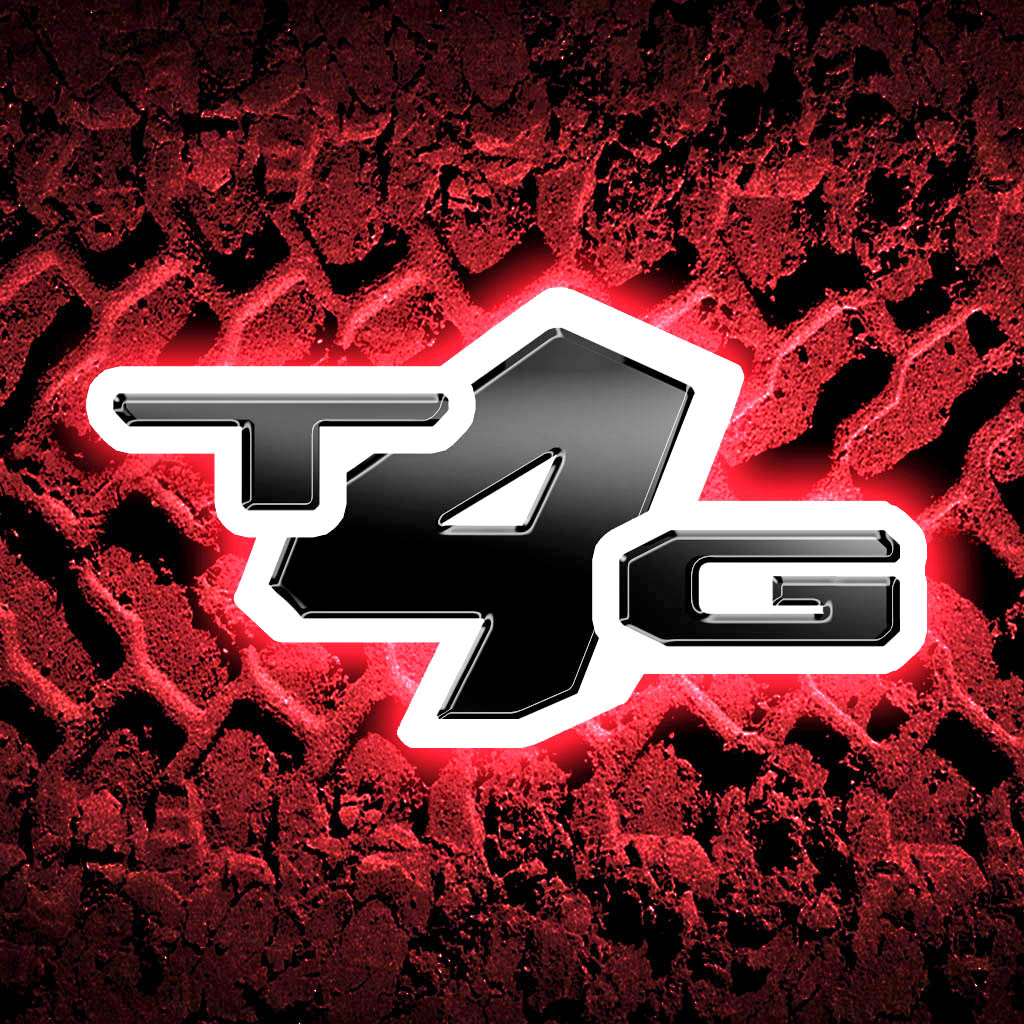Navigation
Install the app
How to install the app on iOS
Follow along with the video below to see how to install our site as a web app on your home screen.
Note: This feature may not be available in some browsers.
More options
You are using an out of date browser. It may not display this or other websites correctly.
You should upgrade or use an alternative browser.
You should upgrade or use an alternative browser.
Watch this for final word on which fuel to use (Hint: Premium fuel matters)
- Thread starter TheMightyGoose
- Start date
Hahaha many folks here bang their heads to the fuel tanks now
Nothing to prove here with this video.
Can be entertaining or education or whatever you please with
My choice is just following what I read from fuel door information: Premium fuel only ( hahah again t3lcfe ? ) lol while typing this
This may interest some.
"87 vs. 91 Octane Fuel: STILLEN’s Kyle Millen reveals how fuel octane impacts the Tacoma’s 2.4L turbo engine, showing a 20-horsepower gain with premium fuel. Learn about octane ratings, real-world dyno results, fuel costs, warranty considerations, and why 91 or 93 octane is essential for maximum power, efficiency, and engine longevity—especially with TruControl or other performance upgrades. Don’t miss this must-watch guide for Tacoma owners!"
"87 vs. 91 Octane Fuel: STILLEN’s Kyle Millen reveals how fuel octane impacts the Tacoma’s 2.4L turbo engine, showing a 20-horsepower gain with premium fuel. Learn about octane ratings, real-world dyno results, fuel costs, warranty considerations, and why 91 or 93 octane is essential for maximum power, efficiency, and engine longevity—especially with TruControl or other performance upgrades. Don’t miss this must-watch guide for Tacoma owners!"
Welcome to the asylum allanvt.I think it is all about gas mileage ! Toyota is concerned the the poor mileage ratings for the Land Cruiser will affect sales so they tuned the engine to take advantage of the better mileage achieved with premium fuel . And that's all there is to it!
I would expect that the ECU would ask for a downshift, ask for electric assist, or limit boost in a low speed, high load situation. My experience with the T24 (non hybrid) in our Highlander at work is that it is still very aggressive in downshifting rather than just adding boost when the vehicle is loaded and the driver is asking for acceleration.By the way, there are types of knock that cannot be prevented by retarding ignition timing. Most common example is when the engine is under heavy load at low RPM. There are alternatives, like alternating valve timing or air/fuel mixture, but some of these can cause catalyst, valve or injector damage over time.
Anecdotally, my GR Corolla will not make over 6-7lbs of boost until it has hit a minimum threshold of engine temp. The ECU knows that ragging on a cold engine is bad, so it limits boost until it is warmed to some minimum. If I'm lugging along at 35mph in top gear, it also won't give me full boost if I mash it. It will hold the boost low until the revs have reached 2200RPM or so despite the turbo easily being capable of making boost.
Me. Too.
This thread makes my brain hurt..
So could one expect lower mileage on regular instead of premium gas? I should try an experiment one day with my current car & see if mileage improves with premium. It sounds like the premium vs regular gas argument could go hand in hand with the mileage not up to EPA numbers debate.I think it is all about gas mileage ! Toyota is concerned the the poor mileage ratings for the Land Cruiser will affect sales so they tuned the engine to take advantage of the better mileage achieved with premium fuel . And that's all there is to it!
Engine compression is high enough (11.1) that it can knock without boost. Engines with compression ratio in this range requires 96 RON fuel.I would expect that the ECU would ask for a downshift, ask for electric assist, or limit boost in a low speed, high load situation. My experience with the T24 (non hybrid) in our Highlander at work is that it is still very aggressive in downshifting rather than just adding boost when the vehicle is loaded and the driver is asking for acceleration.
Anecdotally, my GR Corolla will not make over 6-7lbs of boost until it has hit a minimum threshold of engine temp. The ECU knows that ragging on a cold engine is bad, so it limits boost until it is warmed to some minimum. If I'm lugging along at 35mph in top gear, it also won't give me full boost if I mash it. It will hold the boost low until the revs have reached 2200RPM or so despite the turbo easily being capable of making boost.
Compression ratio vs fuel octane
Downshifting is an option if it is already not at 1st gear. Towing, crawling etc, are potential situations that the vehicle may be at 1st gear with high engine load. Also, if the engine gets hot enough (i.e extended load) it will start to knock regardless of engine speed due to hot spot autoignition.
That, and the EPA numbers were determined in a 1958, with skinnier, and smaller tires (less rolling resistance), and NO ‘air dam’ on the roof like the FE LC’s.So could one expect lower mileage on regular instead of premium gas? I should try an experiment one day with my current car & see if mileage improves with premium. It sounds like the premium vs regular gas argument could go hand in hand with the mileage not up to EPA numbers debate.
I switched to regular two tanks ago. So far, my indicated mileage is down 0.1 mpg.So could one expect lower mileage on regular instead of premium gas? I should try an experiment one day with my current car & see if mileage improves with premium. It sounds like the premium vs regular gas argument could go hand in hand with the mileage not up to EPA numbers debate.
Here's Japan-based Toyota Chief Engineer Sheldon Brown on the subject of why premium gas was recommended for the Land Cruiser and not other trucks in the line up.... To me, his comments seem reasonable, logical, and scientifically sound. Minutes 4:27 - 9:50.
Wow…still going ?! 


Ah ok. So I didn’t even think about that. If the vehicle is offered with the same powertrain across trims, they’re allowed to test it with the most advantageous one?That, and the EPA numbers were determined in a 1958, with skinnier, and smaller tires (less rolling resistance), and NO ‘air dam’ on the roof like the FE LC’s.
Ah fair enough, so likely not a major determining factor for mileage then.I switched to regular two tanks ago. So far, my indicated mileage is down 0.1 mpg.
It would seem so..Ah ok. So I didn’t even think about that. If the vehicle is offered with the same powertrain across trims, they’re allowed to test it with the most advantageous one?
The Tacoma and 4Runner have the bandwidth in their ECU parameters to run on 87 with the same compression ratio. The Land Cruiser would have the same ability to adjust timing to accommodate.Engine compression is high enough (11.1) that it can knock without boost. Engines with compression ratio in this range requires 96 RON fuel.
Compression ratio vs fuel octane
Downshifting is an option if it is already not at 1st gear. Towing, crawling etc, are potential situations that the vehicle may be at 1st gear with high engine load. Also, if the engine gets hot enough (i.e extended load) it will start to knock regardless of engine speed due to hot spot autoignition.
Again, you cannot adjust ignition timing prevent pre-spark knock, it only works for post-spark knock. There are ways to prevent pre-spark knock, but unless we can confirm every parts from cooling to valves to catalyst are 100% identical between LC and Tacoma/4Runner, it doesn't suggest equivalency.The Tacoma and 4Runner have the bandwidth in their ECU parameters to run on 87 with the same compression ratio. The Land Cruiser would have the same ability to adjust timing to accommodate.
More food for thought. There is a thread going in Tacoma forum about engine becoming less noisy with premium.

 www.tacoma4g.com
www.tacoma4g.com

2024 Toyota Tacoma engine noise reduction with premium fuel
Hy bud you're supposed to running premium in Suby turbo'd engines. I have an STi and an Outback XT. Just being safe and hoping to help. It’s not required on my 2022, I choose to run premium, especially on a turbo engine
Well, geezy peezy.. Maybe that’s why Miss Daisy doesn’t make a lot of the noises that everyone complains about. She only gets 93 octane ethanol free fuel.More food for thought. There is a thread going in Tacoma forum about engine becoming less noisy with premium.

2024 Toyota Tacoma engine noise reduction with premium fuel
Hy bud you're supposed to running premium in Suby turbo'd engines. I have an STi and an Outback XT. Just being safe and hoping to help. It’s not required on my 2022, I choose to run premium, especially on a turbo enginewww.tacoma4g.com
The parts catalog has a feature where I can click "where used" and it will show me all the other models that use that exact same part number. Radiator = same, water pump = same, valves = same, catalysts = same, cams = same, VVT gears = same, ignition coils / plugs = same, pistons = same, crank = same, rods = same. In fact, the service part for the entire longblock is shared between 4Runner and Land Cruiser.Again, you cannot adjust ignition timing prevent pre-spark knock, it only works for post-spark knock. There are ways to prevent pre-spark knock, but unless we can confirm every parts from cooling to valves to catalyst are 100% identical between LC and Tacoma/4Runner, it doesn't suggest equivalency.
Similar threads
- Replies
- 28
- Views
- 13K
- Replies
- 28
- Views
- 5K


